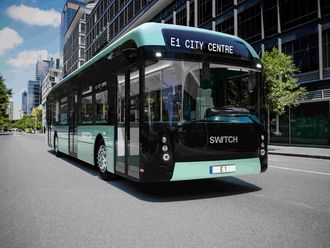Khartoum Sudan will devalue its currency, remove fuel subsidies and reduce the size of its government as part of an austerity package to stabilise the economy and deal with a loss of oil revenue, President Omar Al Bashir said.
The official rate will be “moved” to 4.4 a dollar from 2.7 a dollar to “stabilise the local currency and reduce the gap between the official price and the black-market price,” Al Bashir told lawmakers on Monday in Khartoum. The currency currently changes hands among informal traders on the streets of the city at 5.8 a dollar.
Sudan lost three-quarters of its oil revenue when South Sudan seceded in July. Since then, the two nations have failed to agree on fees that the landlocked south should pay to export its crude through pipeline and processing facilities in Sudan. The loss of income resulted in a $2.4 billion budget deficit and a surge in inflation to 30.4 per cent in May.
Opposition parties have announced plans to protest against higher taxes and fuel prices, while the government last week confiscated editions of two independent daily newspapers for criticising the plan. Students on Monday rallied at Khartoum University for a second day against the measures, following a crackdown by police on Sunday that included a nighttime raid on female dormitories.
Government size
Other measures announced by Al Bashir include reducing the size of the North African nation’s national and regional governments by as much as 56 per cent. The government also plans measures to cut domestic spending and reduce the need for hard currency, he said.
“We’ve taken some decisions that aim at increasing revenue, that include increasing imports taxes, value-added taxes, and raising income tax on banks,” Al Bashir said. Fuel subsidies will be reduced “gradually,” he said.
Sudan’s Finance Ministry will present a reviewed budget to lawmakers on Wednesday that will include the austerity measures, Finance Minister Ali Mahmoud Abdul Rasoul said in an interview on Monday in Khartoum.












